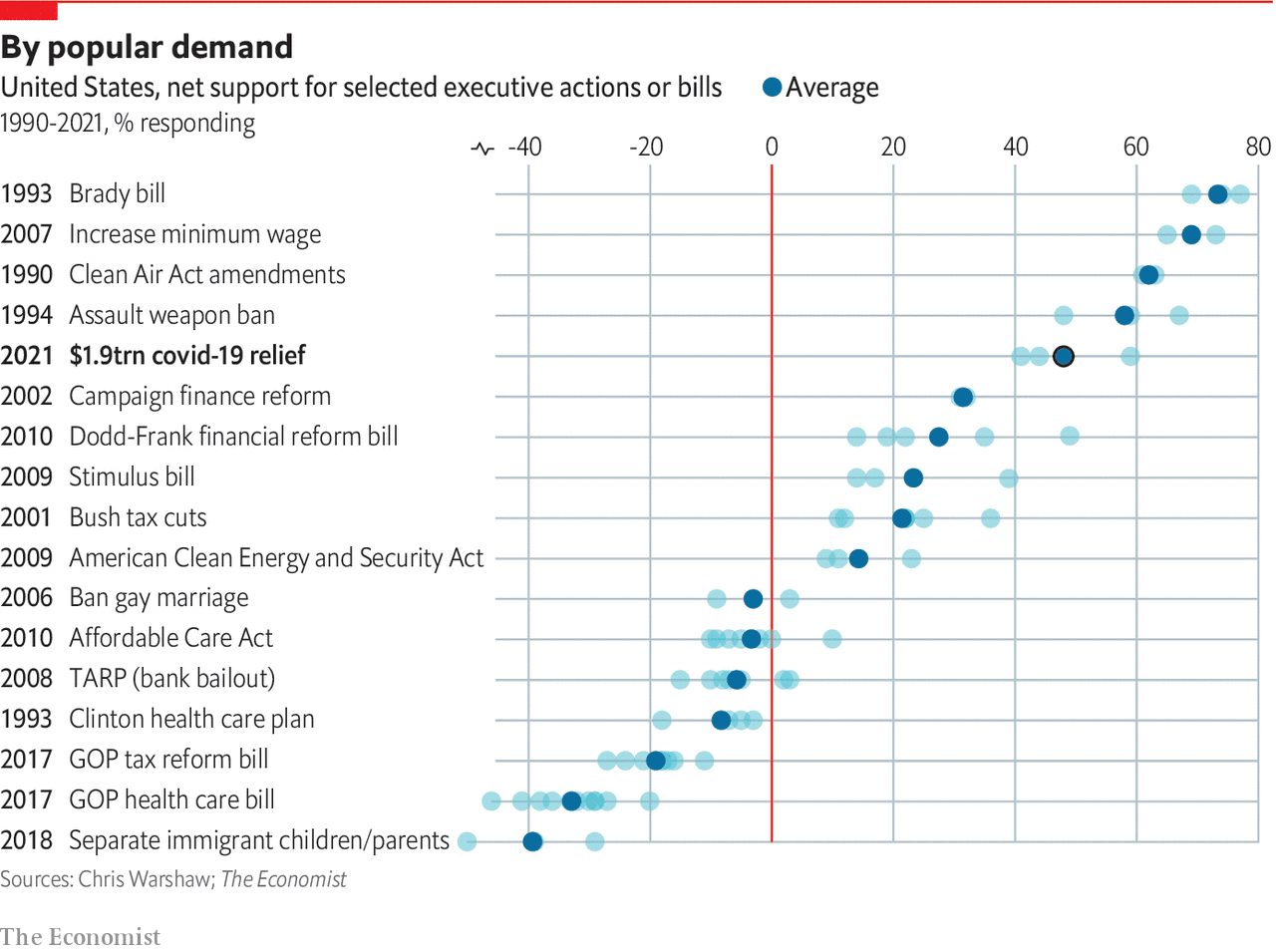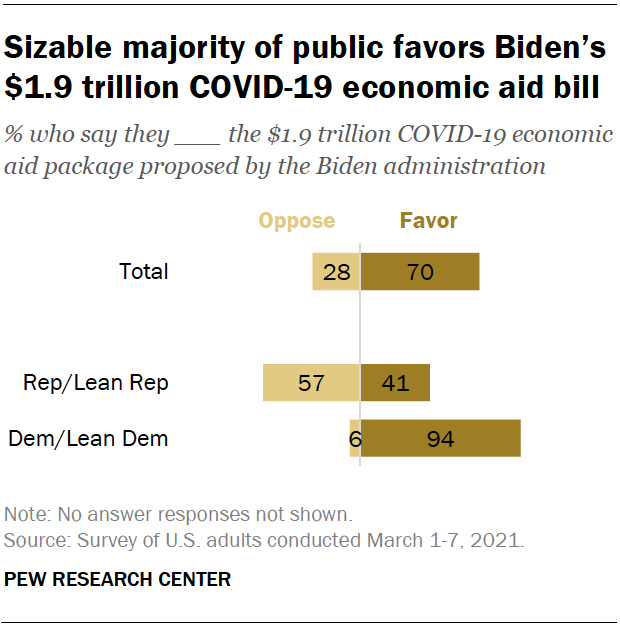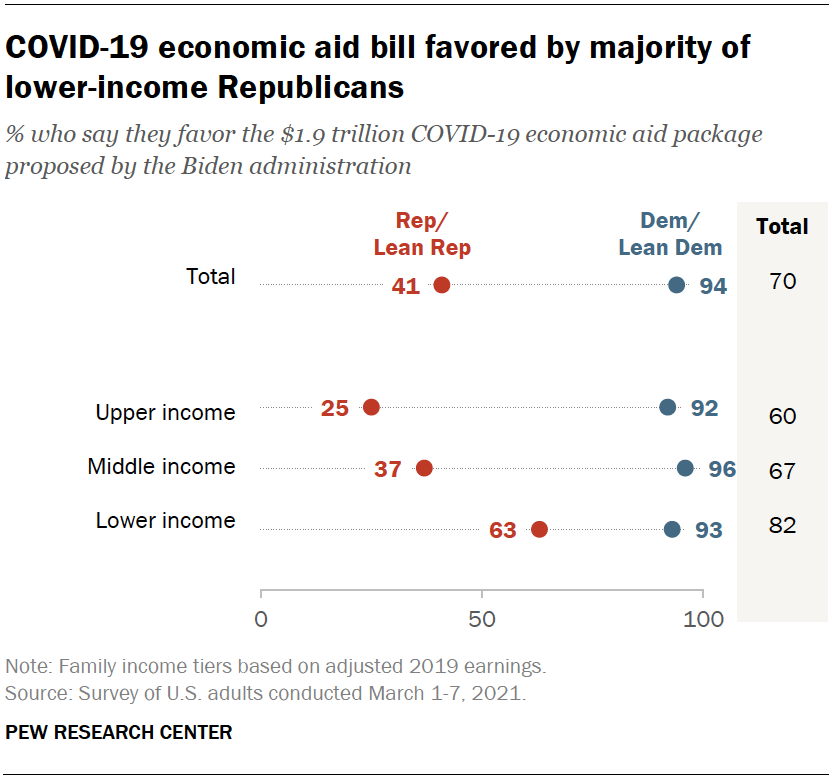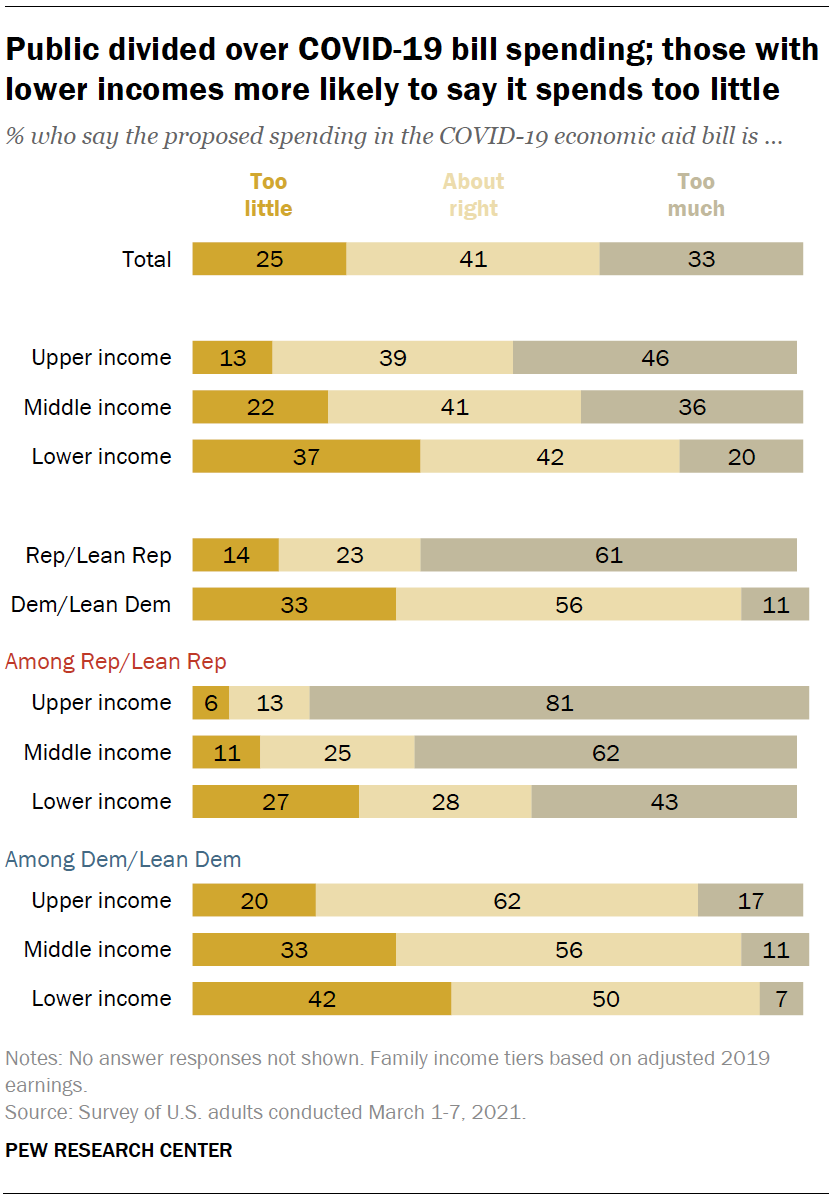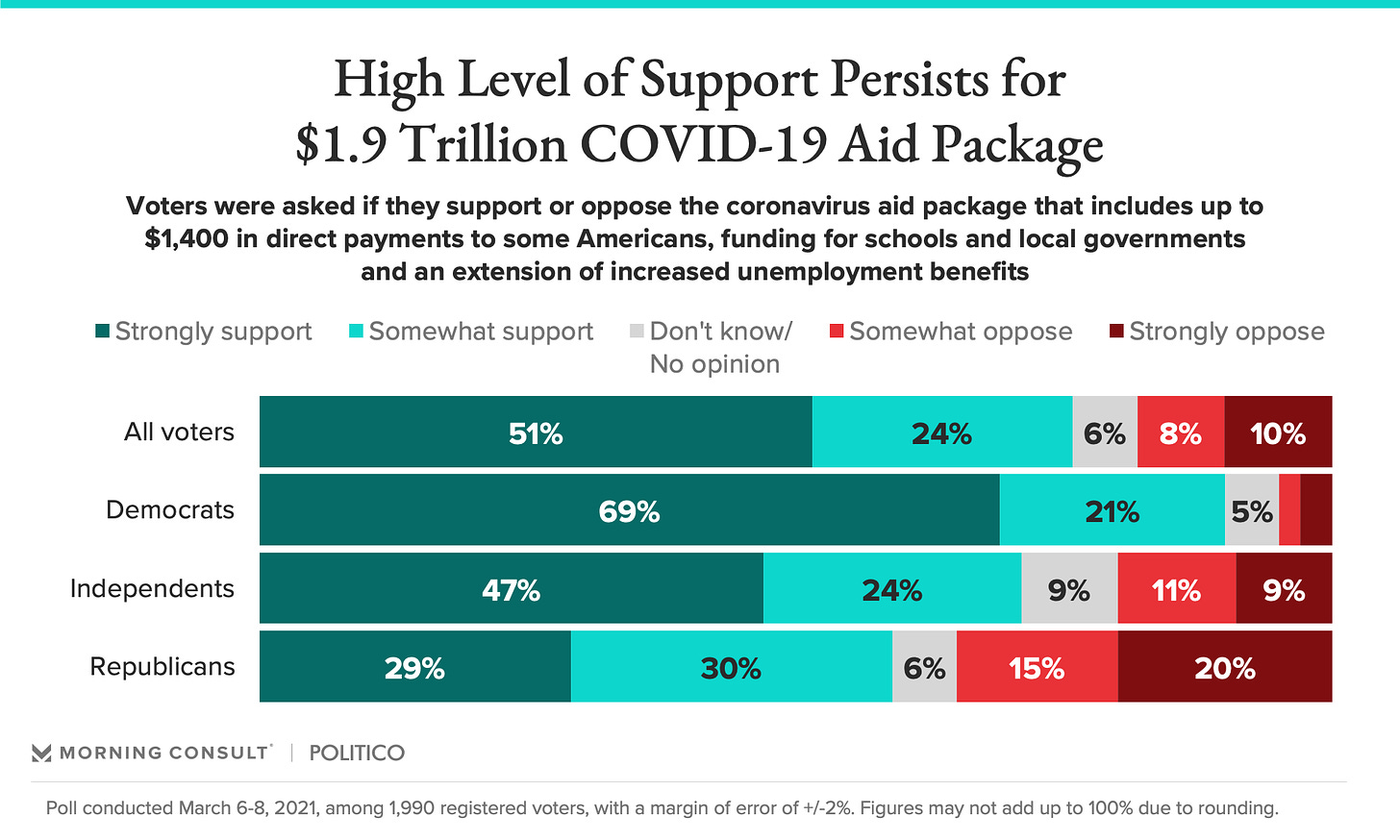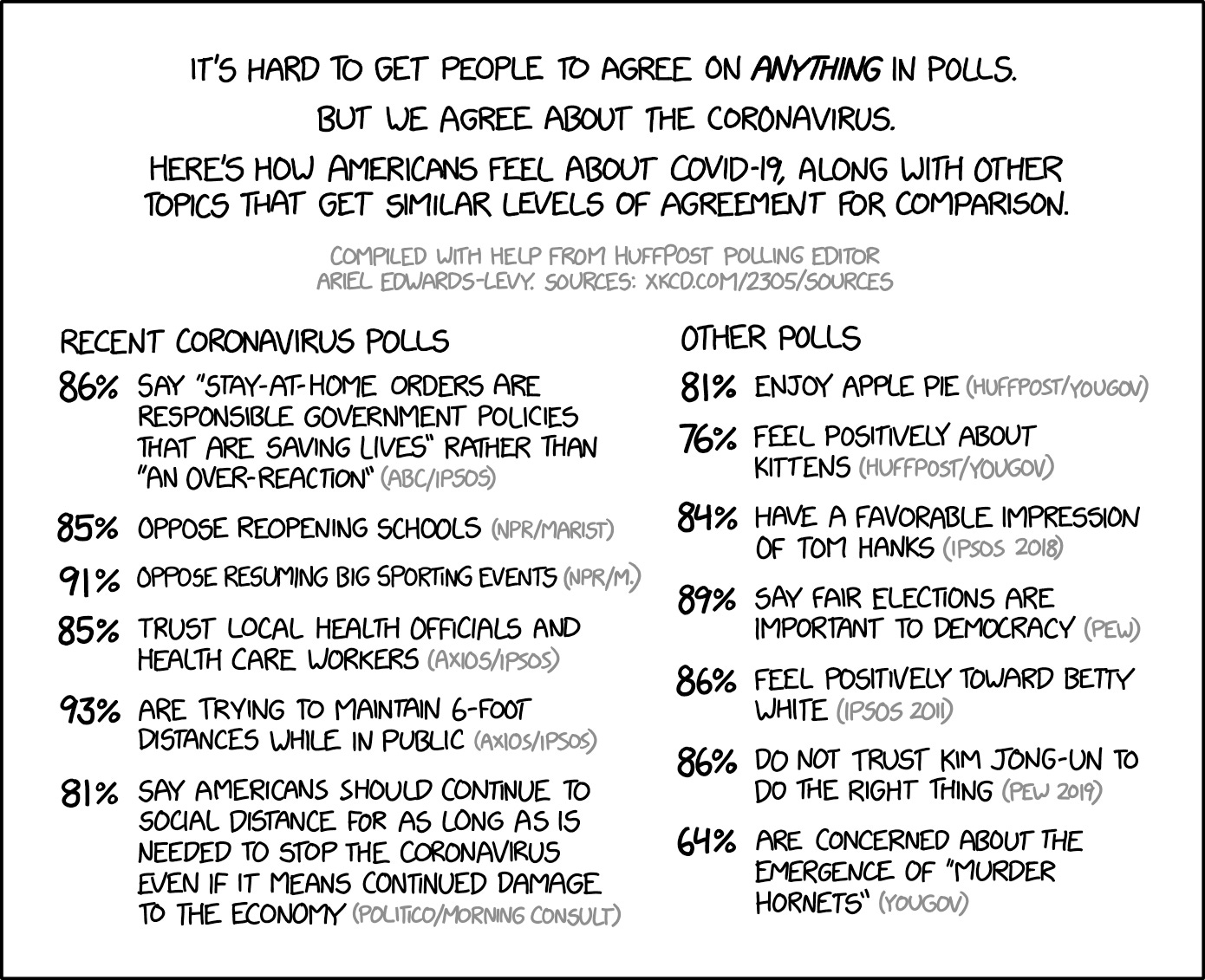The public got what it wanted with Biden's covid-19 and economic relief bill
Polls show the government delivered on its promises — largely thanks to Democrats
If you haven’t already, please read the post I wrote earlier this week about the potential political effects of Democrats’ covid-19 relief bill. In it, I argue that the stimulus poses a unique opportunity for Democrats to win back some of the low-income white voters who have tended to vote for Republicans in the past. Modern electoral history provides no example of government spending this large, so we cannot draw lessons in the usual way. The most relevant information is that economic growth usually helps the incumbent party (though maybe not in midterms). But the income gains from the Democrats’ bill will be huge; For the lowest income quintile, it will deliver about a decade’s worth of income growth and poverty reduction this year.
I want to note that this is a rather remarkable success for government intervention in the economy. In a world where we’re constantly focusing on politics and electoral implications, the substantive impacts of the policy are worth keeping in mind.
In this post, I want to write briefly about something else. Now that Biden has signed the bill, it is worth remembering just how popular it is. The media doesn’t generally do a good job of covering the normative value of the public being on board with a policy — perhaps because it is obvious, or perhaps because they don’t care. There is a lot of value, democratically speaking, in using the polls to know what the people (often people who journalists in New York or DC wouldn’t hear from otherwise) want from their government.
If we didn’t do that, we wouldn’t know the people won this time; In the case of Biden’s stimulus, the people got what they wanted. I think that is worth celebrating.
Editor’s Note: If you found this post informative, do me a huge favor and click the like button at the top of the page and the share button below. As a reminder: I’m fine with you forwarding these emails to a friend or family member, as long as you ask them to subscribe too!
Consider the following numbers.
I wrote for The Economist a few weeks ago that the covid-19 relief/economic stimulus bill was popular among 70% of American adults, and opposed by about 23% of them (with 5% saying they weren’t sure how they felt). That’s according to an average of polls taken by the middle of February.
If you compare that average to polling on previous key legislative proposals (compiled by Chris Warshaw at George Washington University) you see that the $1.9trn Biden bill is more popular than any key policy or action the government has passed or pursued for the past 14 years. The last time polls were this positive was in 2007 when Democrats and George W Bush increased the minimum wage to $7.25 per hour. You have to go back to the Clinton administration to find the next-most-popular bills.
This is a resounding success for democracy — and one that doesn’t happen in American politics today. Due to the gridlock in Washington and the pro-Republican geographic biases of electoral institutions, the government rarely enacts salient policies that are popular with the majority. Accordingly, some may view my comments here simply as cheerleading for America completing the basic functions of a democracy. Yeah, that’s fair.
Consider, next, a Tuesday poll from the Pew Research Center. Pew’s people found that 70% of the public favored Biden’s bill. That included 94% of Democrats and 41% of Republicans. That’s about as bipartisan as you’re going to get on major policies these days:
While the law is also a substantive victory for lower-income voters, it’s also a popular victory for them. 63% of lower-income Republicans and 93% of Democrats in the third tercile for earnings supported the bill. In terms of policymaking that favors the poor, the covid-19 bill is a notable success. I can’t think of any recent policy that did as much for poor people as this week’s stimulus does.
Some less fortunate people, mind you, even wanted the stimulus to be bigger, including 27% (!) of lower-income Republicans (and 14% of the GOP overall).
Finally, here are the data from a Morning Consult/POLITICO poll: 75% support, 18% oppose.
Why the higher support? Well, Morning Consult specifically mentioned that the package “included up to $1,400 in direct payments to some Americans,” rather than simply asking if approved of “the $1.9trn covid-19 economic aid package proposed by the Biden administration.” It is reasonable to expect that the outright statement of personal benefit increased support among people answering the poll.
I think this is all rather remarkable. In part, that’s because we don’t usually see such high levels of agreement among the public. Perceptions of the coronavirus itself are really the only recent thing that comes close:
As someone who studies public opinion and democracy, it is also simply reassuring to see the people finally get something they want. I spend a lot of the day looking at polls that purport to tell us what the average American thinks. I like to think that highlighting those data may have played a role in the $1,400 checks a lot of my friends and family will now be getting.




